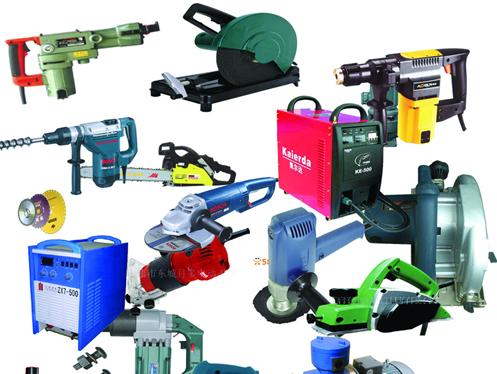
According to statistics from the Kunshan Inspection and Quarantine Bureau, from January to July 2013, Kunshan exported 4439 electric tools, a slight increase of 3.3% year-on-year, while the export value reached 570 million US dollars, an increase of 10.4% year-on-year. After experiencing cold spells in 2012, this year The situation improved, and exports steadily recovered.
Kunshan export power tools products include electric drills, electric planers, electric saws, hammers, sanders, cutting machines, etc., exported to more than 50 countries and regions such as Finland, the United States, Australia, Japan. The EU is the main export market for electric tools in Kunshan, accounting for more than 60% of exports.
Since the beginning of this year, even though the European debt crisis has continued to ferment, the world economy has recovered from sluggish growth, and export companies that are under pressure from the appreciation of the *** have responded positively and worked hard. On the one hand, through the development of new products, the product grades will rise to the high-end professional level, and the added value of products will be increased. On the other hand, the emerging markets will be actively developed and the eggs will not be placed in a basket. With a two-pronged approach, Kunshan's export of power tools steadily rebounded.
Kunshan Lighting Exports Surpasses U.S. Dollars Facing EU New Energy Efficiency Standards Challenge According to statistics from Kunshan Inspection and Quarantine Bureau, Kunshan lamps and lanterns exports in July of this year amounted to US$17.47 million, a year-on-year increase of 36.81%. This year, the cumulative export value was US$103.02 million, a year-on-year increase of 21.09%. , Kunshan lighting companies continue to increase the proportion of exports of LED lamps, profits are about 30% higher than traditional lamps, so under the current background of foreign trade environment is unfavorable, it still achieved a contrarian growth.
LED is the abbreviation of Light Emitting Diode (LED). It uses a solid semiconductor chip as a light emitting material to obtain various colors of light such as red, yellow, blue, and white by photon emission. At present, LED has been widely used in decorative lights, urban landscape lighting, large screen displays, automotive lamps, general lighting and other fields. The LED consumes only one-tenth of the energy of an incandescent lamp, but its lifetime is 100 times. It is praised as a revolutionary technology in the 21st century era of new solid-state light sources. In view of the increasing maturity of LED lighting technology, in recent years, developed countries such as the United States, Japan, and the European Union have successively formulated relevant standards to regulate the requirements for the safety, performance and energy efficiency of LED products.
It is worth noting that the upcoming September 1st, the latest energy efficiency requirements of the EU LED lighting products will begin implementation. The EU is the region with the highest import requirements for LED products. LED products entering the EU market must meet the safety requirements in the Low Voltage Directive, the electromagnetic compatibility requirements in the EMC Directive, the environmental requirements in the RoHS and WEEE Directives, and the energy efficiency requirements in the ErP Directive. In addition, LED products also need to comply with the conformity assessment procedures stipulated in the corresponding regulations. Only in this way can the CE mark be affixed to enter the EU market smoothly.
According to the ErP Directive, the European Union has developed energy efficiency requirements for different lamps in phases. In 2009, it launched EC244/2009 for non-directional light sources (mainly halogen lamps, fluorescent energy-saving lamps), for fluorescent lamps, ballasts, and accordingly After the EC245/2009 of the lamps, the EU1194/2012 was again launched in December 2012 for all LED bulbs and directional light sources. This directive will take effect on September 1, 2013 and will be implemented in three phases. Next, the second phase of the implementation of this requirement is September 1, 2014, and the third phase is September 1, 2016.

 According to statistics from the Kunshan Inspection and Quarantine Bureau, from January to July 2013, Kunshan exported 4439 electric tools, a slight increase of 3.3% year-on-year, while the export value reached 570 million US dollars, an increase of 10.4% year-on-year. After experiencing cold spells in 2012, this year The situation improved, and exports steadily recovered.
According to statistics from the Kunshan Inspection and Quarantine Bureau, from January to July 2013, Kunshan exported 4439 electric tools, a slight increase of 3.3% year-on-year, while the export value reached 570 million US dollars, an increase of 10.4% year-on-year. After experiencing cold spells in 2012, this year The situation improved, and exports steadily recovered. 
